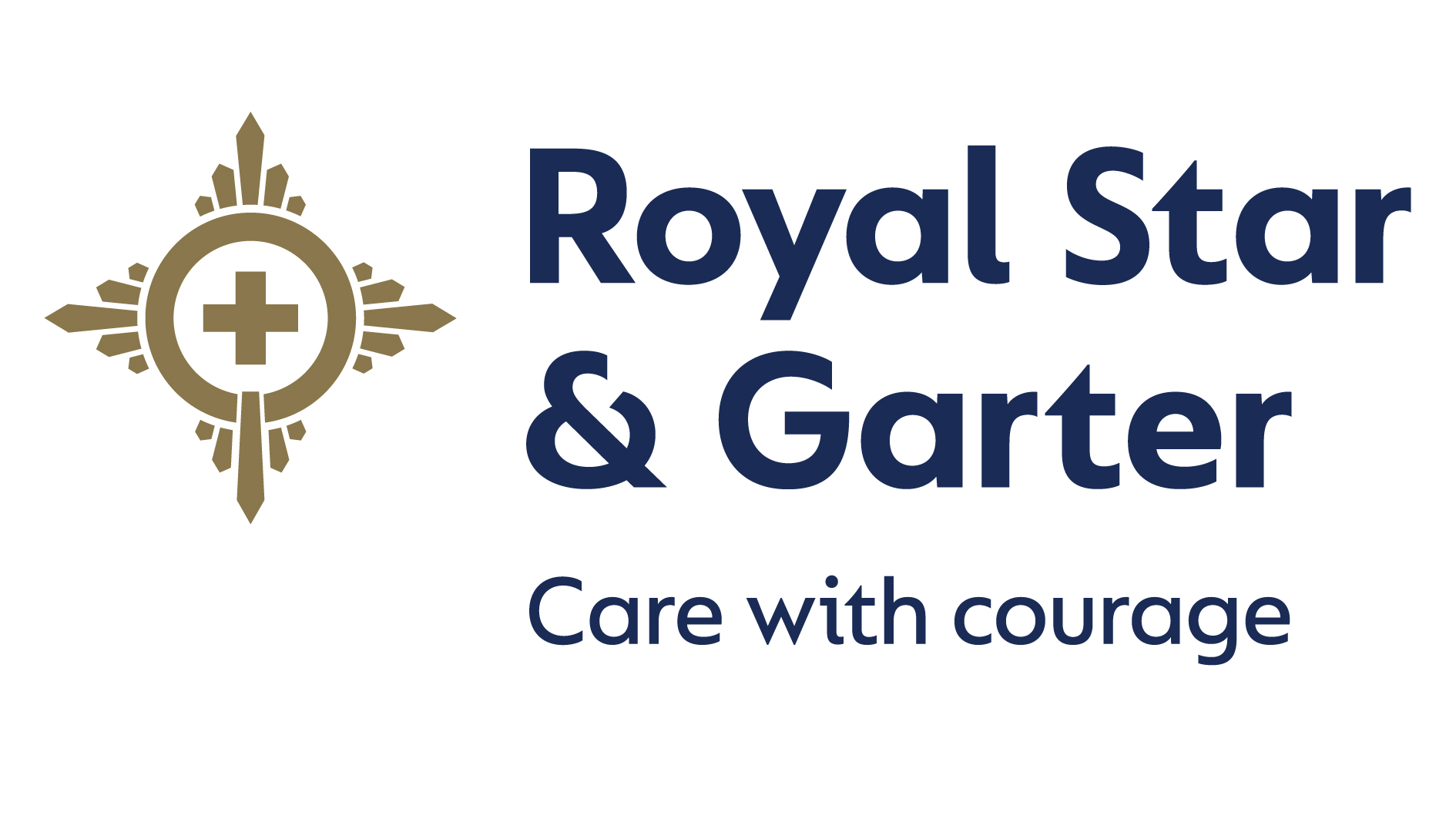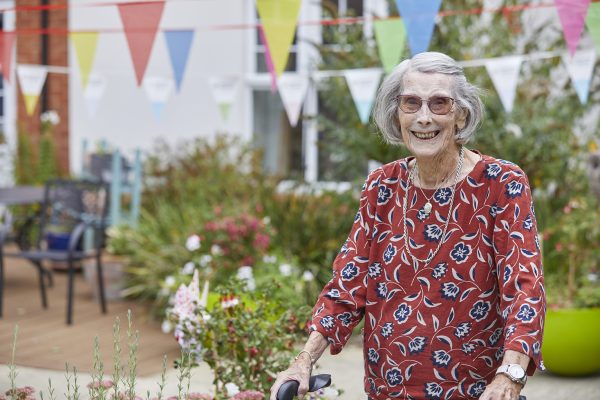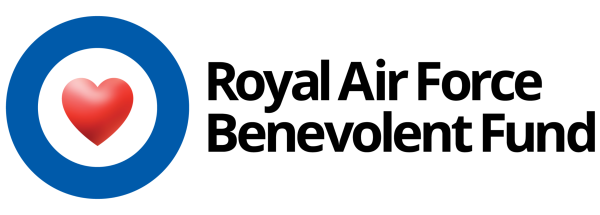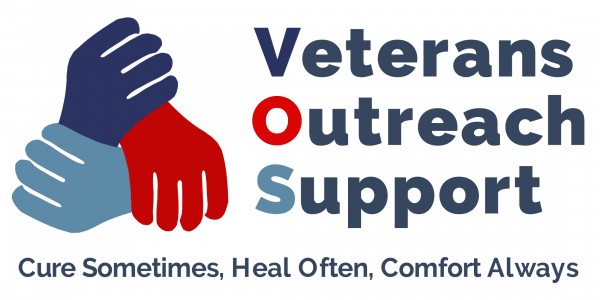WWII veterans at Royal Star & Garter care homes have been remembering Victory in Europe (VE) Day, 80 years ago.
They recalled celebrations and festivities which took place on 8 May 1945, following Nazi Germany’s unconditional surrender to Allied forces in WWII, and the end of fighting in Europe. Some also paid tribute to sacrifices made by those who served during the war, and reflected on the difficulties which continued after VE Day.
Royal Star & Garter provides loving, compassionate care to veterans and their partners living with disability or dementia, from Homes in Solihull, Surbiton, High Wycombe, and now in Worthing, having recently merged with the military charity Care for Veterans. The charity also has services reaching into the community, including Day Care, Lunch Club and a free-to-use Telephone Friendship Service.
Those sharing memories of the momentous day live at Royal Star & Garter’s Homes, or use its other services.
Among those remembering VE Day was Amy, who celebrated her 100th birthday earlier this year, and was in the Women’s Auxiliary Air Force (WAAF) during WWII. The veteran, who lives at the charity’s Surbiton Home, signed up as a 17-year-old in 1942, and was a barrage balloon operator, before becoming a plotter at a station near Hastings. She was there on D-Day in 1944, and again for VE Day the following year. She said:
“I was stationed in Hastings and we went on a victory parade. I remember it distinctly, it was jolly good. But I thought about the people that had lost so much. I was there when we sent people across to Normandy [for the D-Day landings], so of course we thought about all the people who were no longer with us.”
Bill had joined the RAF in 1943, aged just 15, and was serving at RAF Halton in May 1945. Now a resident at the charity’s Home in Solihull, he said:
“It was fairly obvious we were getting close to it [Nazi surrender] the day before. That evening a group of WAAFs came up to our wing and there was dancing in the barracks’ square. That was highly unusual because the barracks’ square was holy ground that you didn’t go on, and we weren’t supposed to associate with women! The following morning they announced we had the day off and we could do what we like. Myself and a couple of friends went to Wycombe and we spent VE Day there. By the time my celebrations had ended the last bus had left for Halton, so I stayed the night, with a couple of RAF friends, at my mother’s, who lived nearby. The joyous nature of that day is hard to describe, it’s was an absolutely splendid occasion. But I was just a young lad, I didn’t dwell on what had been achieved or what had been lost. We had other thoughts.”
It was also a special moment for Bill’s father, Jack. He had served in the trenches during WWI, and was injured in the Somme. During WWII he joined the Home Guard as soon as it was formed. Bill recalled:
“He did more than his bit for his country over the two World Wars.”
For Richard, who lives at the High Wycombe Home, the relief in the air was palpable. He was just 12 at the time, and went on to enjoy a long and distinguished career as a pilot in the RAF. He was in Hazelmere on VE Day, and said:
“We were still at war with Japan, but as far as the war in Europe was concerned, it was exciting and interesting [that it was over]. There were a lot of street parties – they had long tables and lots of people on all of them. I can remember it quite clearly, it was a great time actually. There was a tremendous amount of relief that war had finished.”
Margaret, from Royal Star & Garter in Solihull, was in Birmingham and aged 13. Now 93, she said:
“It was fantastic. There were street parties everywhere. I remember all the tables in the streets. Wives and mums used to go around the street collecting coppers (loose change) towards the street parties. I remember my mum going round all the houses collecting money for the party. It was so exciting!”
Other residents also remembered celebrations and festivities. Solihull resident Sue was at teacher training college in Cheltenham. Just 18 at the time, Sue said:
“They put out bread and sandwich filling and we had the day off, everybody did what they wanted. We went into town, there was jollifications and flags were going up and church bells were ringing and there was more or less a street party. It was a gloriously sunny day in Cheltenham. Everybody was rejoicing.”
Bob was nearly 10 and at school in Tolworth, south west London, on VE Day. Now a resident at the Surbiton Home, he said:
“I was going to school and people were putting up flags. An old man said to me ‘it’s all finished now, you can have celebrations tomorrow’. They were putting up bunting, US flags and Union Jacks, all down the road. I put some flags around my aunt’s oak tree. I remember the VE Day parades, they were memories I will never forget. We had special lunches at school. We were allowed to dress up, there were parties in the playground. It was unforgettable.”
For RAF veteran Michael, who also lives at Royal Star & Garter in Surbiton, VE Day not only brought peace in Europe, but his father back from war. Michael was aged seven at the time, and explained:
“We were living near Bury St Edmunds and went there because there were parties going on all over the place. You could see these trails in the sky, all these planes buzzing about. Everyone seemed to be happy and everyone seemed to know everyone else. There was much shaking of hands and hugs and laughter and there seemed to be quite a lot of things to eat − up to then there wasn’t much!” A short while after, his father, who had been serving in the RAF, returned home. Michael continued: “He had been building runways on the Shetland Islands for some time. We saw him very occasionally… then one day he came back with a funny suit on. It was a demob suit, it didn’t seem to fit him, but we were glad that he was back.”
Despite being just six at the time, Pat, who went on to serve in the Women’s Royal Army Corps, has vivid memories of VE Day. She uses Royal Star & Garter’s Telephone Friendship Service, and also comes to the Solihull Home for Day Care and short breaks. She said:
“I was living in Bournemouth and we had a street party, I remember the flags and tables all the way down the streets. We played games and someone was playing a piano that had been rolled out of one of the houses. But only the children ate, the mums, and few dads that were about, stood behind us. I offered my mum some food but she refused it. I was too young to realise but things must have been really tight. And I was also told Daddy would be home soon. He’d joined the Army just after I was born, and was in the Royal Artillery in North Africa.”
Mary, a resident in Surbiton, said while VE Day brought peace in Europe, hardships would continue for a long time to come:
“There was great jubilation,” she said, “but rationing and shortages lasted for several years after that. But at least we could all sleep safely in our beds and our menfolk were home from fighting in the war.”
For Stan in Solihull, VE Day was memorable for another reason for the Army veteran. He was 13 and in Birmingham, and said:
“We were in the swimming baths when someone came in and said, ‘The war’s over’. We all ran out, we never even dried ourselves!” The next day Stan cut short his celebrations after feeling unwell. He said: “In the afternoon I felt terrible, so I went in and lay down on the settee. My dad fetched a doctor and I was taken to hospital, I had diphtheria! I was delirious for a few days, and I spent 12 weeks in hospital. So I only caught the first half-day of celebrations for VE Day!”
Royal Star & Garter is welcoming new residents into its Homes. For more information on this, the other services it offers to the veterans community, or to work for the charity, go to www.starandgarter.org
Watch the video here – https://vimeo.com/1076827608


















